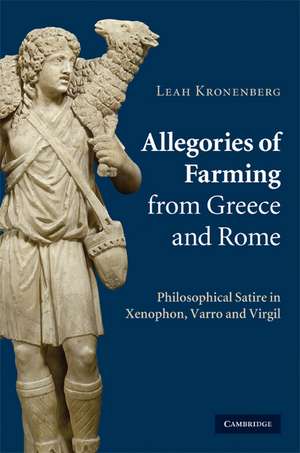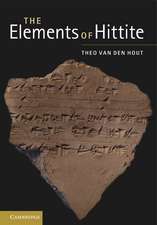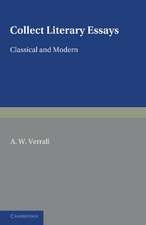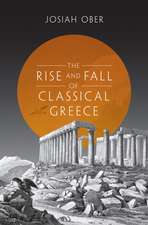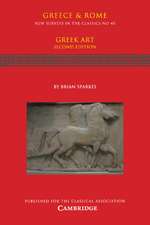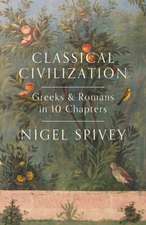Allegories of Farming from Greece and Rome: Philosophical Satire in Xenophon, Varro, and Virgil
Autor Leah Kronenbergen Limba Engleză Hardback – 13 mai 2009
Preț: 676.23 lei
Preț vechi: 786.31 lei
-14% Nou
Puncte Express: 1014
Preț estimativ în valută:
129.41€ • 134.29$ • 108.17£
129.41€ • 134.29$ • 108.17£
Carte tipărită la comandă
Livrare economică 15-29 martie
Preluare comenzi: 021 569.72.76
Specificații
ISBN-13: 9780521517263
ISBN-10: 0521517265
Pagini: 236
Dimensiuni: 159 x 235 x 29 mm
Greutate: 0.52 kg
Editura: Cambridge University Press
Colecția Cambridge University Press
Locul publicării:Cambridge, United Kingdom
ISBN-10: 0521517265
Pagini: 236
Dimensiuni: 159 x 235 x 29 mm
Greutate: 0.52 kg
Editura: Cambridge University Press
Colecția Cambridge University Press
Locul publicării:Cambridge, United Kingdom
Cuprins
Introduction; Part I. Xenophon's Oeconomicus: 1. Socrates and Critobulus (Oec. 1-6); 2. A philosopher and a gentleman (Oec. 7-21); Part II. Varro's De Re Rustica: 3. The art of farming; 4. The morality of farming; 5. The politics of farming; Part III. Virgil's Georgics: 6. Virgil's satire on farming; 7. Farmers and poets; Epilogue.
Notă biografică
Descriere
This book shows that, instead of just being works on farming, these texts in fact belong to a tradition of philosophical satire.
